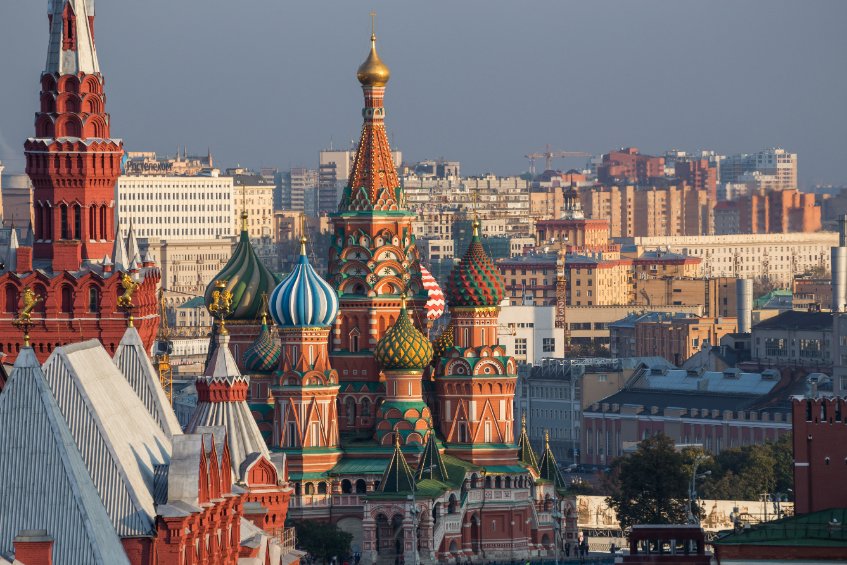
Sanctions.
Unquestionably a buzzword inside cryptocurrency circles – alongside censorship, regulation and centralisation.
This week has confirmed how massive a problem that is – and the rising curiosity of regulation enforcement in cryptocurrency. America introduced Wednesday the takedown of a Russian-Venezuelan community that used Tether (USDT) to maneuver cash round illegally.
Worldwide sanctions have been levelled aggressively towards Russia after the invasion of Ukraine in February. That shortly introduced up the subject of cryptocurrency, and its potential means to avoid such sanctions, into the limelight.
Censorship-resistance is a pillar of crypto
On the one sense, censorship resistance is nice. Certainly, it is among the backbones of cryptocurrency. Via that seductive high quality of decentralisation, people acquire the power to take management of their wealth and keep away from the affect of governments and different central entities.
This decentralisation and censorship-resistance provides all kinds of advantages. Consider these dwelling below untrustworthy regimes, now with an avenue to realize some management over the wealth. Residents seeing mass inflation by way of incompetent governments, who can now merely purchase stablecoins with minimal effort, therefore storing their worth in USD.
These benefits are roughly acknowledged by all people. To me, they current a number of the causes I’m so enthralled with this odd little business. It helps to interrupt down monetary privilege, permitting residents of creating nations the prospect to protect their wealth. Positive, bitcoin is extremely unstable and at present grossly unsuitable as a retailer of worth, however cryptocurrency additionally extends to stablecoins, much less unstable cash – there’s a entire raft of choices.
Is decentralisation additionally a drawback?
Many decry Tether for the very fact it’s centralised. Oh – you’re topic to the whims of the US authorities, they argue. They usually’re proper. Check out final month’s occasions with Twister Money, the money mixer on Ethereum, to see this.
The federal government can order Tether to freeze wallets every time it desires, and Tether should comply. They’re a regulated firm – and that’s how regulated corporations are obliged to behave.
That is why I’ve argued for therefore lengthy about how centralised Ethereum is. The whole ecosystem is so depending on centralised stables like Tether and Circle. If the capital flowing via the system is centralised and topic to censorship, then how can Ethereum – or DeFi at giant – be decentralised?
However we have to confront the disadvantages of decentralisation, too. As magical as it’s – and for all of the doorways it opens up – there are additionally very important drawbacks. The power of actors to avoid worldwide sanctions is one. That is an ominous but very actual actuality – decentralised cryptocurrencies do assist this.
What occurred this week?
This week’s announcement – that the US Division of Justice was urgent prices towards 5 Russian an d two Venezuelans accused of sustaining a worldwide community of cash laundering and commerce with sanctioned corporations – highlights how actual a problem that is.
The Division of Justice introduced that the accused facilitated the commerce of tons of of thousands and thousands of barrels of oil which have been subsequently shippied to Russian and Chinese language consumers. Moreover, members of the cohort have been accused of smuggling army know-how to Russia.
As Russia continues to terrorise Ukraine, this paints a sombre image of cryptocurrency aiding the warfare effort. In line with The Block, one of many accused, Russian nationwide Yury Orekhov, reportedly informed an confederate “no worries, no stress. As quickly as we begin berthing, we’ll instantly switch. USDT works fast like SMS”.
Professional-Russian paramilitary teams have additionally reportedly used cryptocurrencies to fund their actions. Having mentioned that, Ukraine have leveraged the crypto donation angle considerably extra – elevating over $100 million following a plea from its vice-president on Twitter.
And that is with a centralised cryptocurrency like Tether, which means the potential considerations broaden to all of cryptocurrency, slightly than simply decentralised cash. For the latter, nevertheless, the means for regulation enforcement to curtail the criminal activity is tremendously lowered – each an unimaginable blessing but in addition a scary prospect.
Is it price it?
Like numerous issues, there’s good and dangerous right here.
It comes as to whether the positives outweigh the negatives. Does the ability of decentralisation and all the great it will probably provide the world outweigh the potential for dangerous actors to transact extra freely?
I consider it does, however we must be cautious about how we go about this, whereas not overlooking the very sinister issues occurring on the fringes of this business. Regulation enforcement has a component to play too, in fact, and the developments this week present they’re starting to try this an increasing number of.
To shut this off, decentralisation is wonderful. Nevertheless it’s not excellent – and that must be acknowledged. Hopefully the great can proceed to outweigh the dangerous. However subsequent time you wax lyrical a couple of utopian future constructed upon a decentralised framework, contemplate the truth that there are additionally drawdowns.

